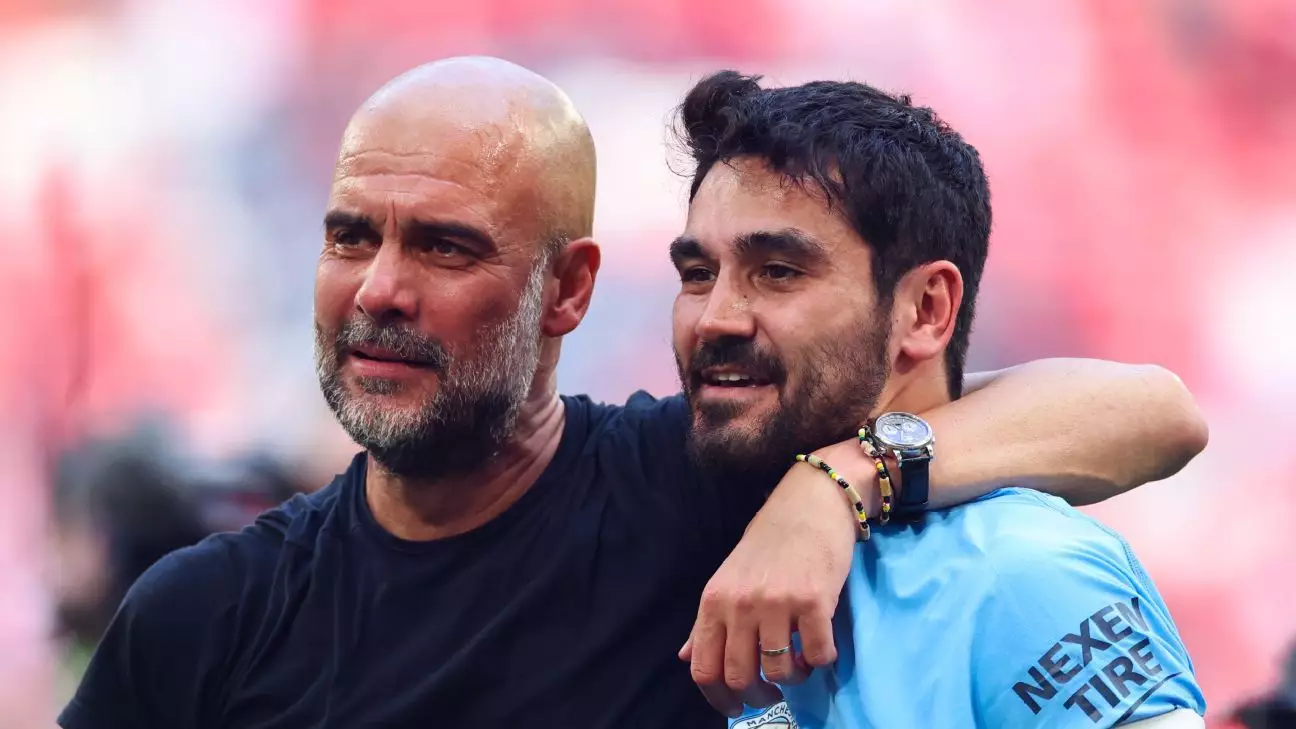The upcoming Euro 2024 quarterfinal between Germany and Spain is not just any ordinary clash. It represents a meeting of two footballing titans who have evolved over the years to embrace possession-based styles of play. This transformation is no mere coincidence. Looking back to the Euro 2008 final, where Germany and Spain faced off, one can see how much has changed in the span of 16 years. The once disparate styles of the two nations have now converged, making them akin to philosophical siblings on the football pitch.
The shift in Germany’s approach to the game became apparent during the 2010 World Cup. Under Joachim Löw, the German squad underwent a transformation, moving away from traditional emphasis on athleticism and stability towards a more dominant possession style. This change was further solidified when they faced Spain in the semifinals, where they were outplayed and eventually defeated. The resemblance of that German team to Pep Guardiola’s Barcelona side was uncanny, indicating the growing Spanish influence on German football.
Pep Guardiola, with his tactical acumen, played a significant role in shaping the footballing landscape in Germany. Upon taking over at Bayern Munich in 2013, Guardiola brought with him a new vision for the team. He introduced tactical adjustments aimed at enhancing Bayern’s competitiveness on the European stage. One of Guardiola’s notable acquisitions was Thiago Alcantara, whose creativity and playmaking abilities added a new dimension to Bayern’s attacking play. Guardiola’s impact on Bayern Munich paved the way for a more possession-oriented style of football in Germany.
Following Guardiola’s tenure at Bayern Munich, Germany went on to win the 2014 World Cup in Brazil, showcasing a blend of fluid positional play and defensive solidity. The national team continued to embrace Guardiola’s ideas, albeit with varying degrees of success due to player profiles. While Guardiola himself adapted his tactics at Manchester City, Germany struggled to find the right balance under Löw. However, under current coach Julian Nagelsmann, there has been a noticeable improvement in striking a balance between attack and defense.
Meanwhile, the Bundesliga witnessed another Spanish maestro making waves in the league. Xabi Alonso, drawing from his time under Guardiola at Bayern Munich, reshaped Bayer Leverkusen’s style of play with patient passing and positional innovation. Alonso’s approach, though inspired by Guardiola, bears his unique stamp, emphasizing dominance but with a distinctive flair of its own. Leverkusen’s evolution under Alonso mirrors the broader shift towards possession-based football in Germany.
As Germany and Spain prepare to face off in Euro 2024, the clash represents not just a battle between two national teams but a collision of footballing philosophies. Spain’s dominance on the ball and relentless pressing contrast with Germany’s technical prowess and attacking flair. Both nations share a similar approach to the game, seeking to control play and emerge victorious through their distinctive styles. The evolution of both teams over the past 16 years reflects a broader shift in footballing ideologies.
The clash between Germany and Spain transcends a mere football match. It symbolizes the convergence of two nations whose footballing philosophies have evolved over the years, influenced by key figures like Guardiola and Alonso. As the Euro 2024 quarterfinal looms, fans can expect a spectacle that not only showcases the talent on the pitch but also the nuanced strategies and styles that have shaped modern football. Germany vs Spain is not just a game; it’s a clash of footballing ideologies.

